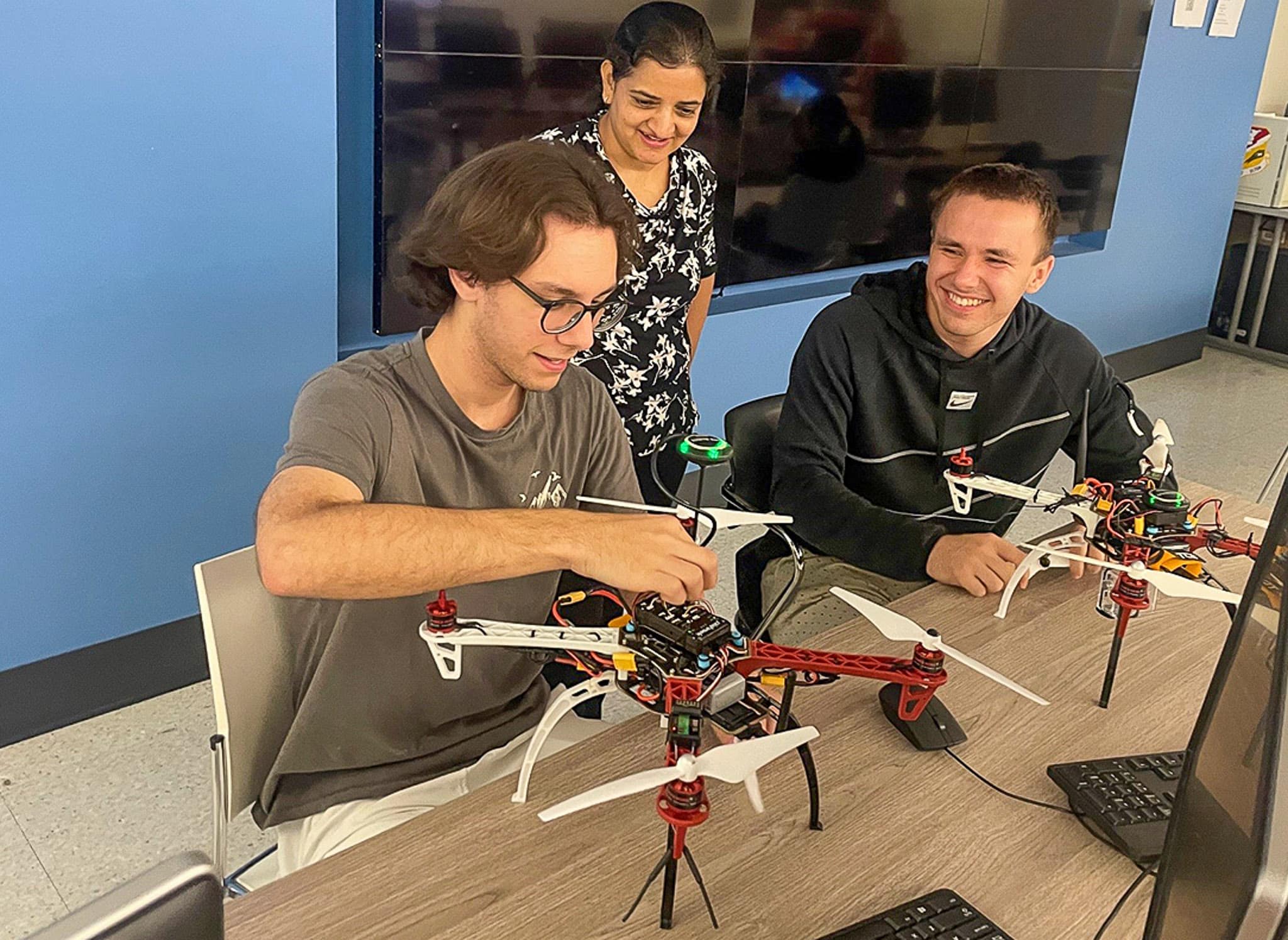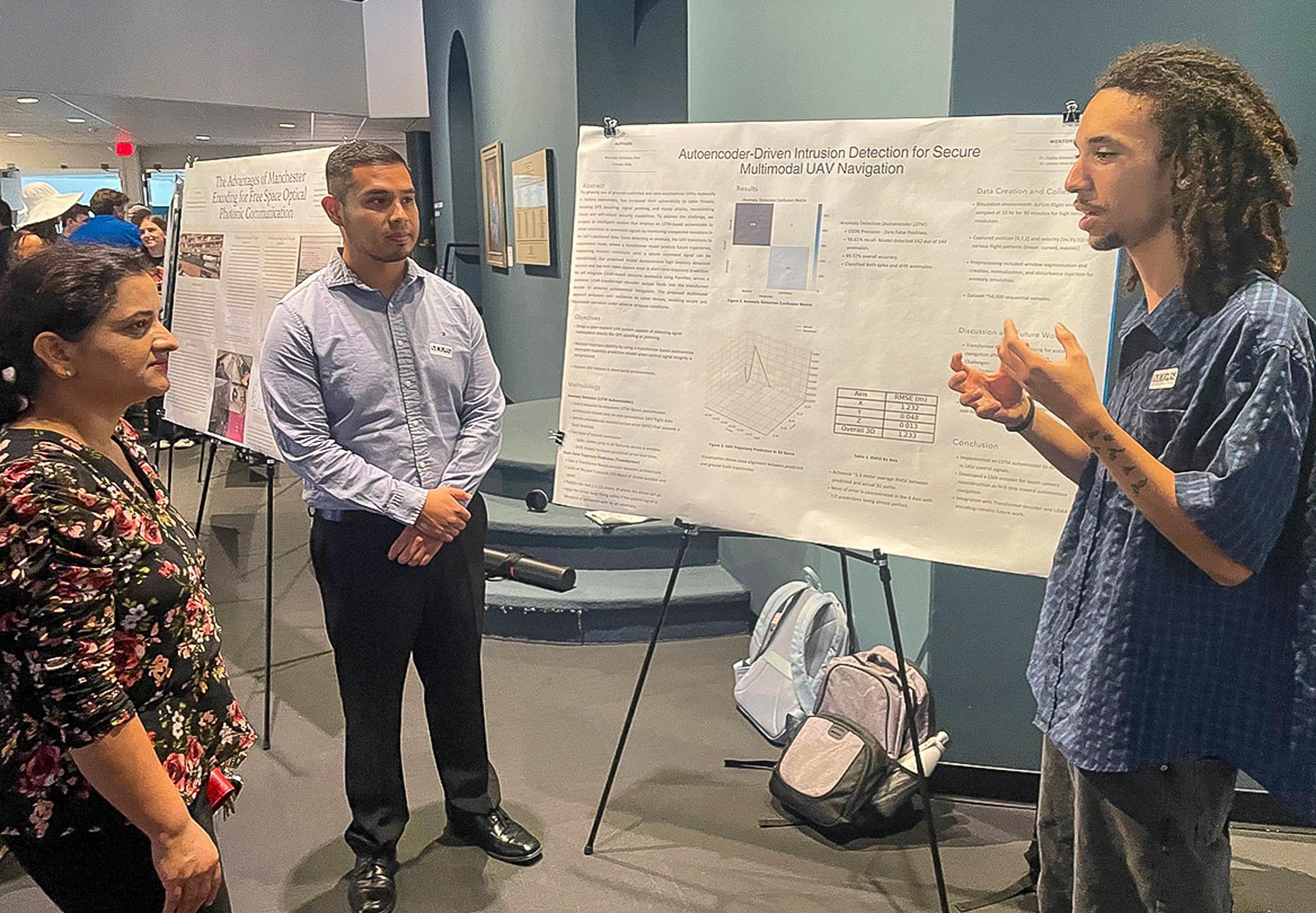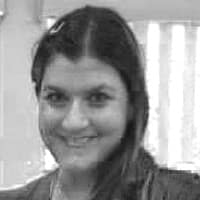Undergrads Strengthen Drone Cybersecurity Through Embry-Riddle, NSF Research Program

This summer, Embry-Riddle Aeronautical University student Kyrylo Holovenko tackled cybersecurity protections for drones, researching a machine learning algorithm to detect attacks.
Holovenko – who worked on the research project with fellow students Nicolas Machado and Jaxon Selzer – was one of 10 students selected for the National Science Foundation (NSF) Research Experience for Undergraduates (REU) held at the university’s Daytona Beach Campus.
“Through this program, I’ve developed skills in signal analysis and applying machine learning to detect spoofing attacks,” said Holovenko, a junior Software Engineering student from Palm Coast.
The 10-week summer research program was led by principal investigator Dr. Laxima Niure Kandel, assistant professor in the Department of Electrical Engineering and Computer Science. Kandel is also director of the Cybersecurity and Assured Systems Engineering (CyBASE) Center and a member of the leadership team at Center for Aerospace Resilient Systems (CARS).
“This summer, the REU included three Embry-Riddle students, but students applied and came here from all over the country,” said Kandel. “The goal of the program is to get students excited about cybersecurity and STEM careers, which have a high demand.”

Connor Kelly presents his UAV cybersecurity research to Dr. Kandel in a poster session at the Embry-Riddle Undergraduate Research Showcase at the Museum of Arts and Sciences in July. (Photo: Embry-Riddle/ Melanie Stawicki Azam)
The REU program directed by Kandel is funded by a three-year NSF grant of more than $400,000 and aims to prepare students for careers in the high-demand field of cybersecurity. This year’s program focused on uncrewed aerial vehicle (UAV) cybersecurity research projects, with teams of students working with College of Engineering and CARS faculty mentors.
“At the end of 10 weeks, if they are going to graduate school, they are very well trained in research,” said Kandel. “This is a good environment for them to experiment and gain experience they would not get in a classroom environment.”
Connor Kelly, a computer science student at the University of North Carolina-Charlotte, said he has participated in two REU programs at other universities.
“Embry-Riddle’s REU has been the most research intensive one I’ve done,” said Kelly. “You are really pushed to your limit.”
Kelly worked with Marcelo Diaz, a computer science student from California State University at Monterey Bay, on research to develop an AI-driven object avoidance model that enables drones to avoid other swarms.
“We are doing independent research with a mentor guiding us, so it’s intense,” said Kelly. “It’s really made our brains think and nobody is holding our hands.”
Vienna Li, an Electrical and Computer Engineering student from Cornell University, found out about Embry-Riddle’s REU program at a NASA professional development workshop, where she met Embry-Riddle Ph.D. student Kayla Taylor, whose advisor is Kandel. Li worked with Justin Villa, a senior Computer Science student at Embry-Riddle, on a GPS spoofing research project. Their work investigated a hybrid detection strategy that combines aircraft attitude data with real-time satellite tracking, which can be applied to drones. The team closely worked with CARS and was mentored by Jayson Clifford, lead research scientist at CARS.
“I’ve always been interested in aerospace, so I’m super excited to be here,” said. Li. “We got to see the wind tunnel and the other facilities at Embry-Riddle. This has been very meaningful and worthwhile for me.”
Students presented their research and took questions from fellow students and faculty mentors each week, honing their public speaking and presentation skills, said Taylor. Some of them participated in a poster session at the Embry‑Riddle Undergraduate Research Showcase at the Museum of Arts and Sciences in July.
“Research shows that students exposed to these different experiences gain skills that go beyond the curriculum,” said Dr. Omar Ochoa, associate professor in the Department of Electrical Engineering and Computer Science and REU faculty mentor.
Machado, a Computer Engineering student, said the skills he has learned will give him a smoother experience as he continues doing research and will help him when he pursues a graduate degree in cybersecurity.
Selzer, a senior Computer Science major, agreed, saying he applied for the REU program primarily to gain formal training in conducting research, including designing experiments and writing a final research paper.
“I was also drawn to the program because of my interest in drones and their potential impact on our lives in the future,” said Selzer. “Looking ahead, I plan to continue to build on these skills.”

 Melanie Stawicki Azam
Melanie Stawicki Azam